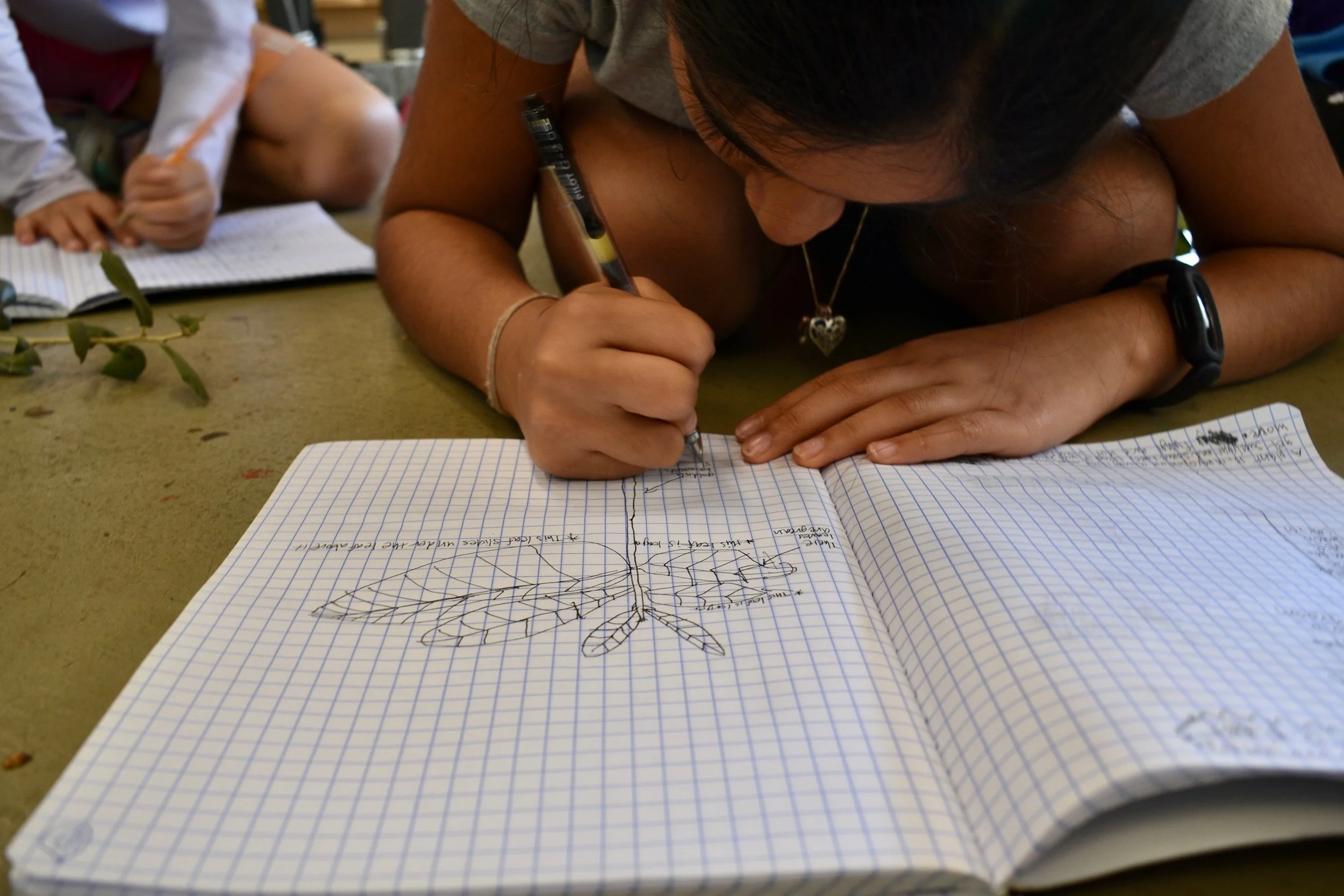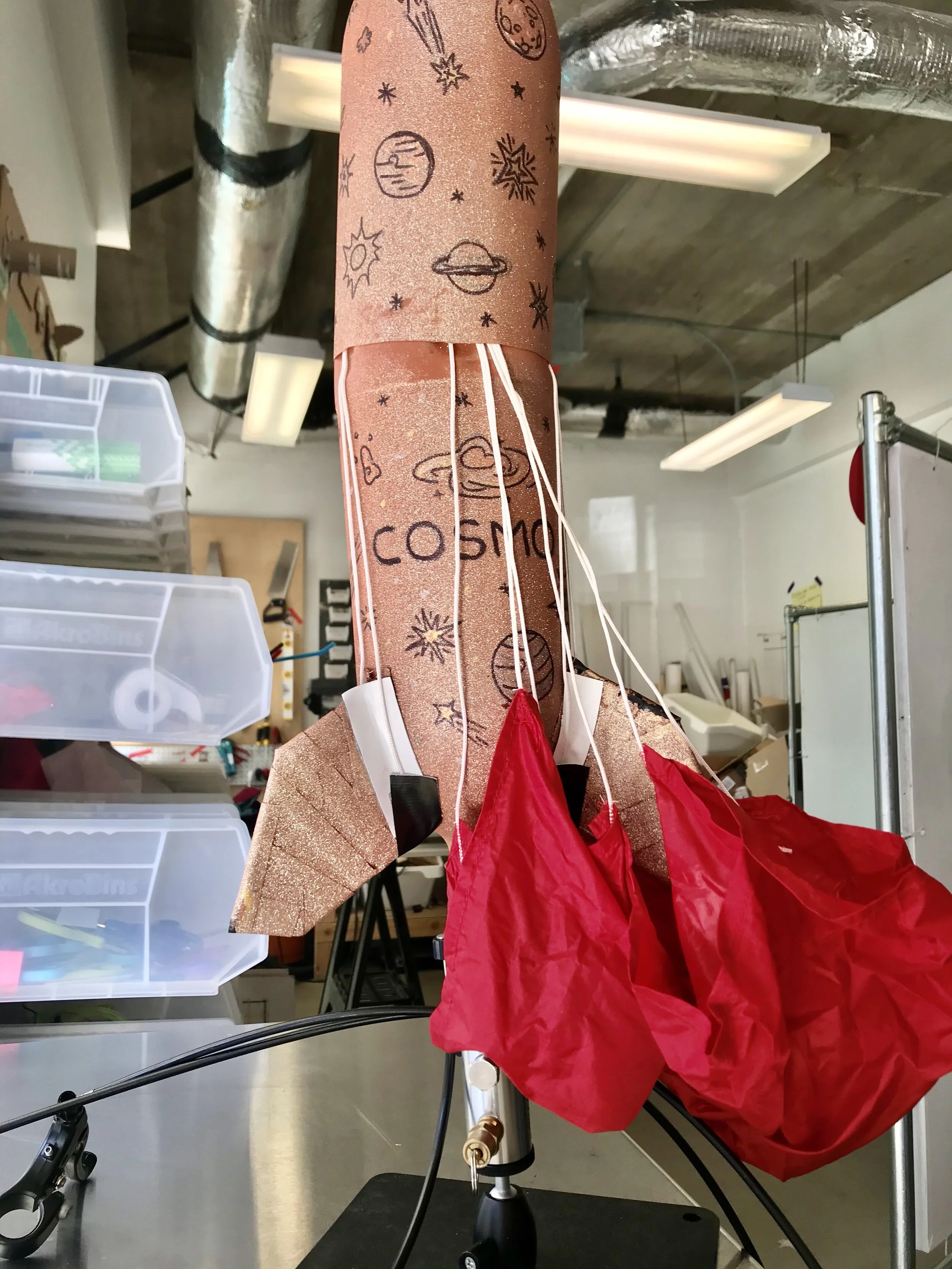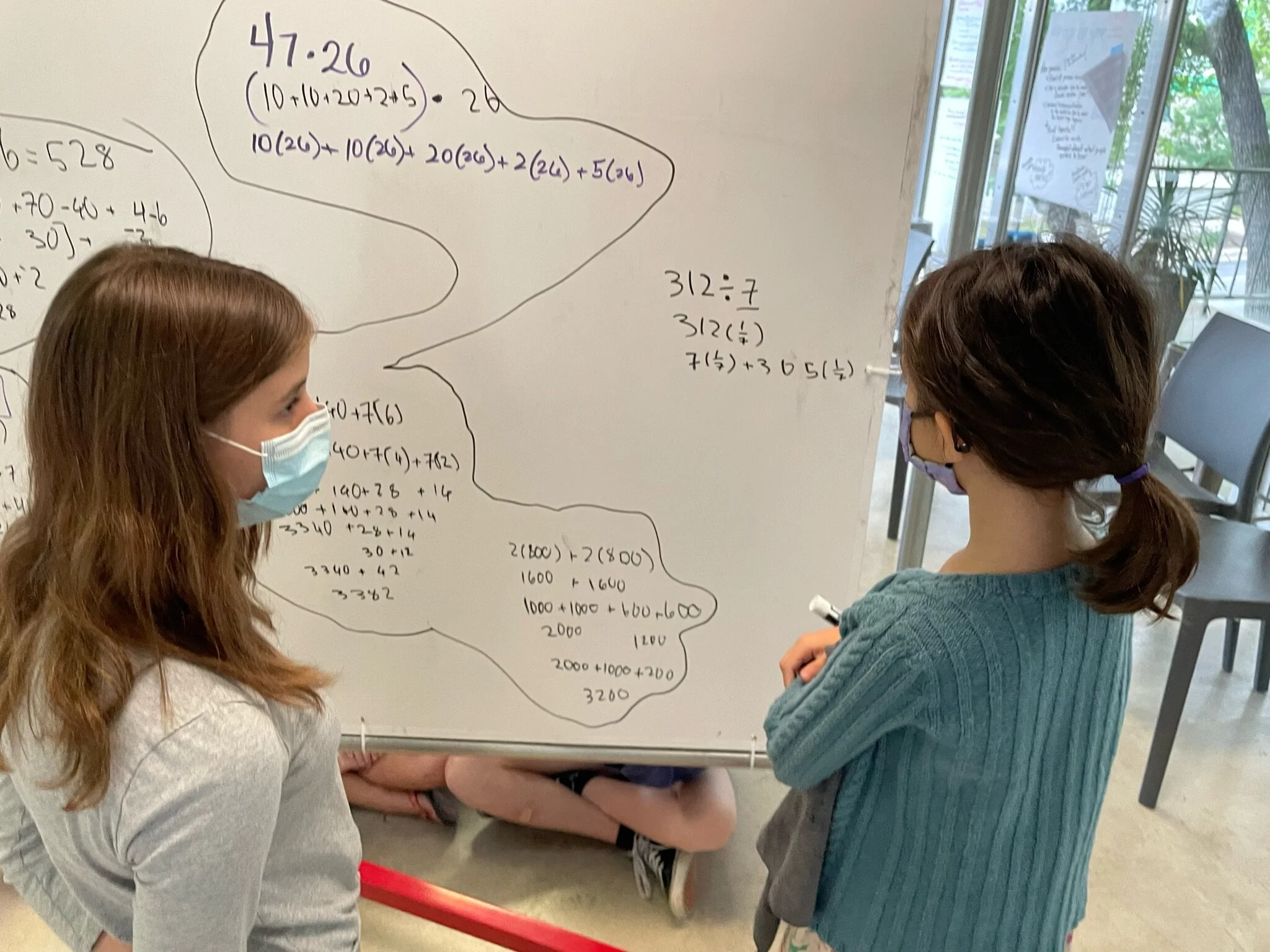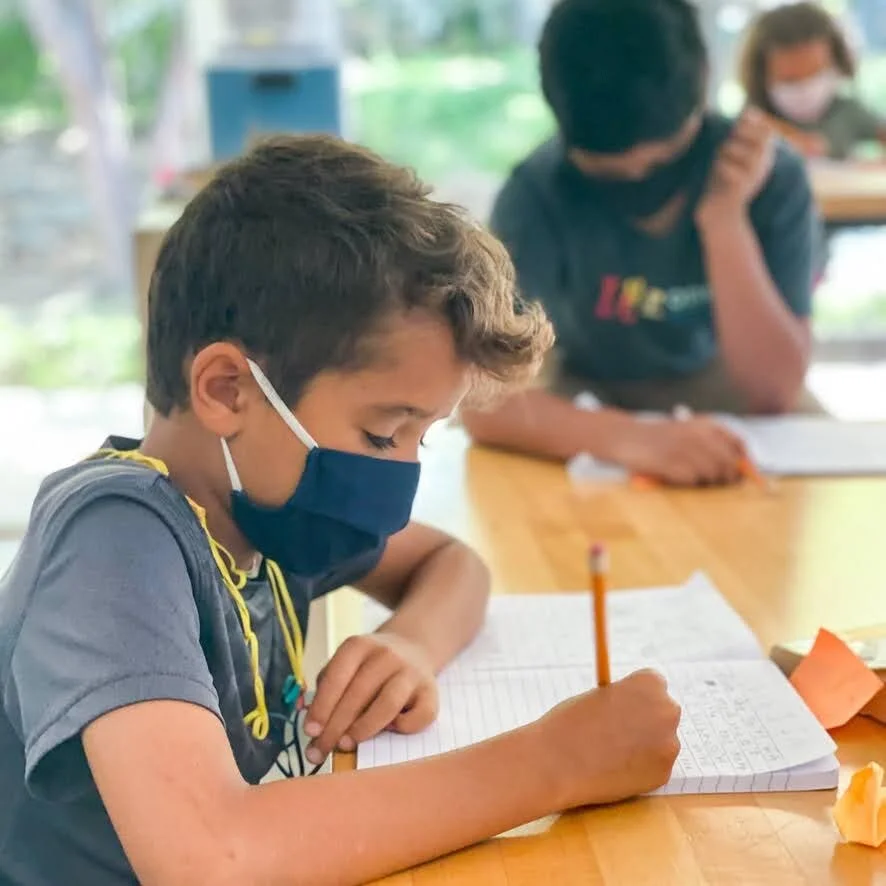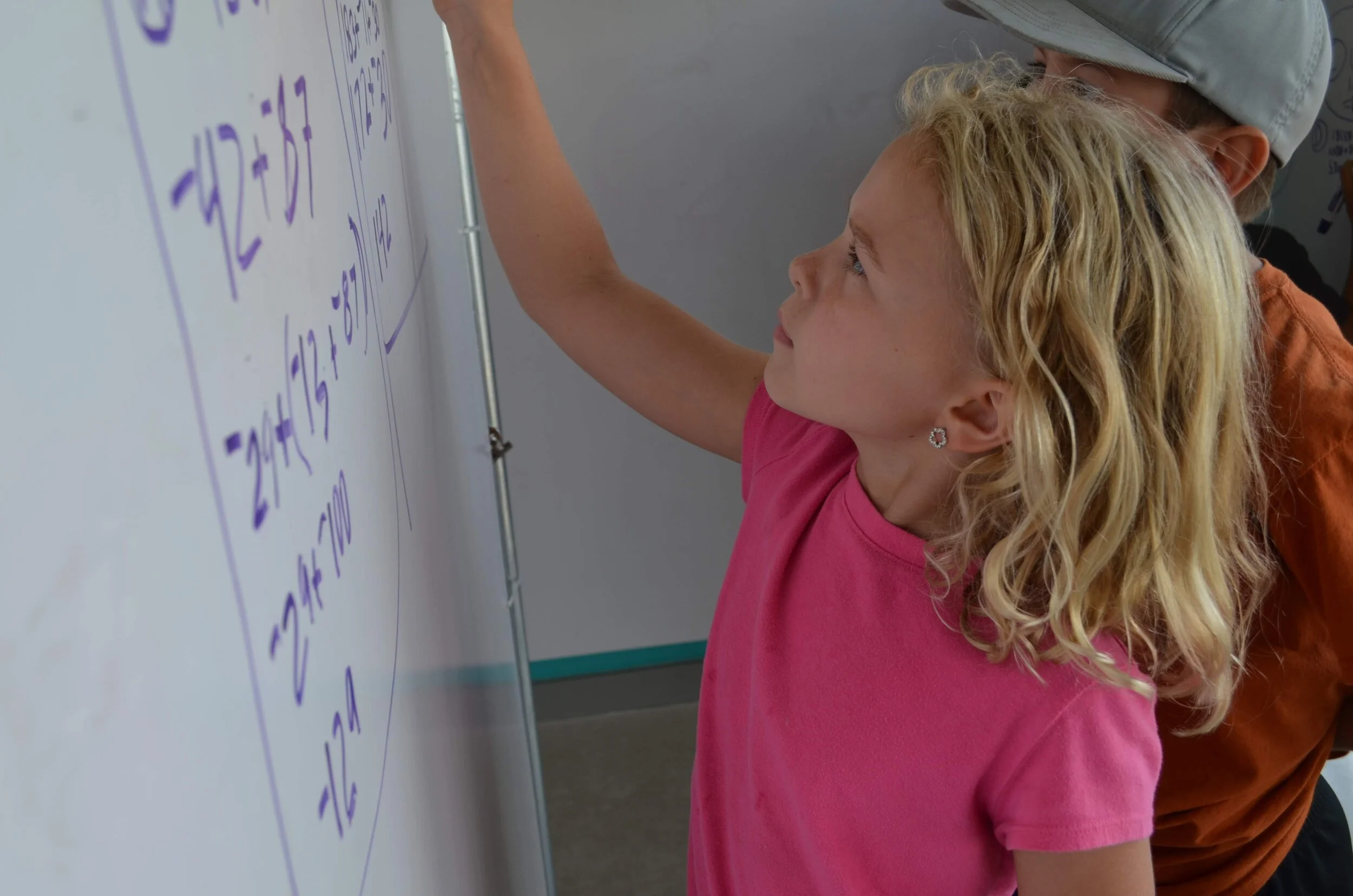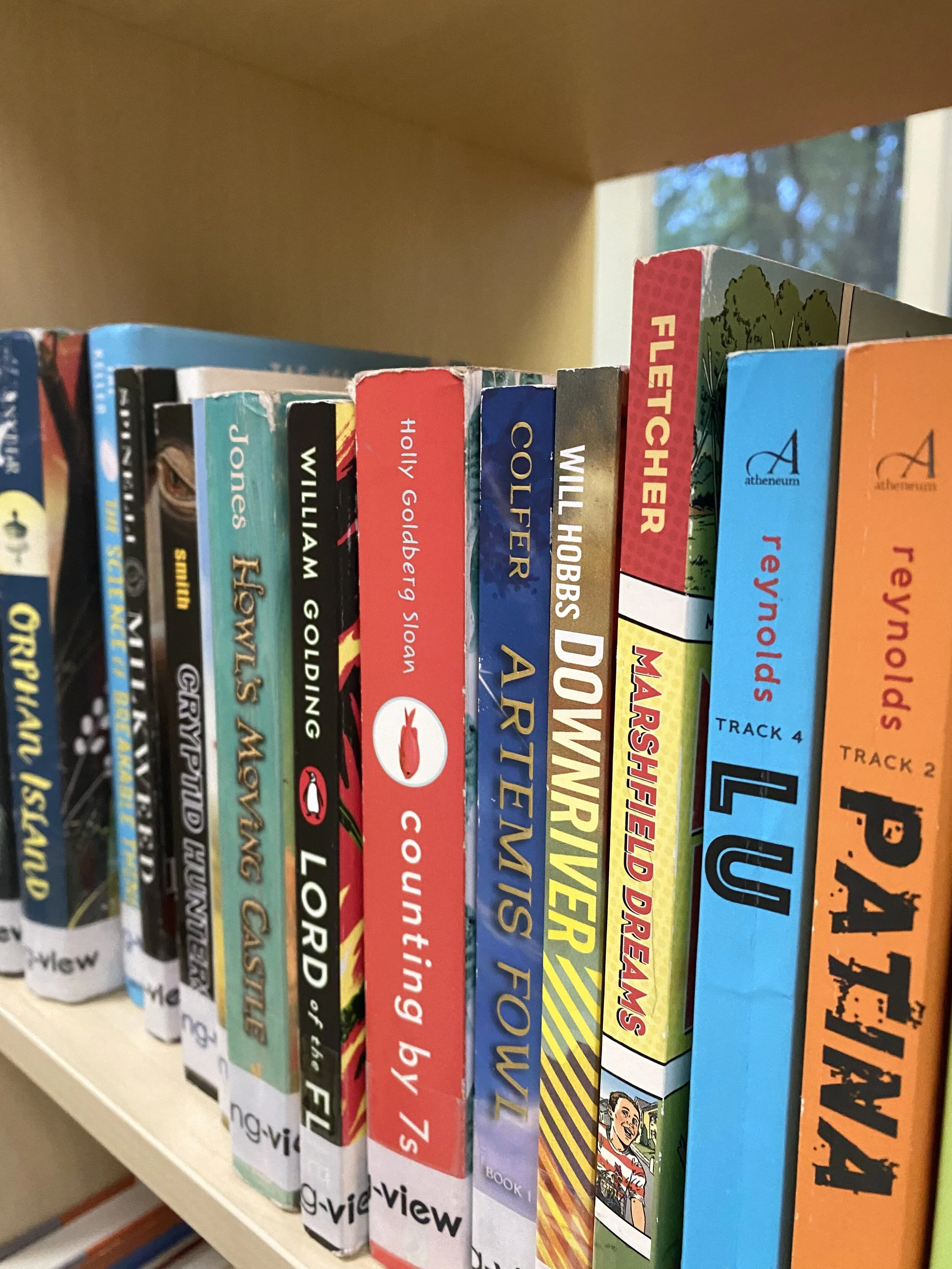Long-View teachers value the progress in reading that can occur during summer months, and with that they spend significant time doing something that rarely happens at other schools: crafting individualized reading lists for each child. Rather than give everyone at a grade level the same list of required reading, our teachers work to build individualized lists for each reader. Today the first step of this process began when blank lists for every child were posted on the windows across the school. Every day for the next two weeks, all teachers will work to build out the lists, which will then be taken home by the kids on the last day of school….
Read MoreBuild Weeks are an important part of life at Long-View, but the parameters of Covid presented many complexities and for over a year we were not able to gather together as a full community or in teams that crossed bands. But last week the teachers came up with a plan to safely pull off a Build Week. As always, the dates and project challenge of the upcoming Build Week were kept secret, and the teachers carefully crafted a “reveal” last Monday so as to provide a level of authenticity to the Build Week challenge and to deeply invest the learners in the work for the week.
On Monday morning, the first day of the yet-to-be-revealed Build Week 11, Campfire started off in a slightly unusual way….
Read MoreWe use Pease Park daily and last week, the park's value reached new heights! Blue and Purple Bands tested learner-designed-and-built rockets, shooting the vessels high above Live Oak Meadow.
The rocket science unit began in January with both virtual Science Blocks and weekly in-person build workshops. During these build workshops the kids spread out in our parking lot, which served as our temporary, very-well-ventilated makerspace...or should we say, “The Long-View Jet Propulsion Research Facility”? The learners were studying astronomy and for their engineering project associated with this unit they learned about the physics of rockets….
Read MoreEvery fall our 8th graders begin their journey of looking at high schools. We hate to think of these amazing kids leaving us, but they are ready for the next step and always go off to rigorous high schools across Austin. Recently one of our 8th graders, Astrid, wrote a high school admissions essay that highlighted her experience as a math mentor in our program called “Big + Little Math.” Astrid gave us permission to share this essay with you once it had been turned in as part of her application process for a particular high school — Enjoy!
I never thought I would get to be a math teacher in seventh grade, but in late fall of 2019, I suddenly found myself standing at a whiteboard teaching a third grade student how to simplify fractions. This unexpected opportunity not only taught me more about myself as a leader and as a friend, but also ended up impacting the entire school….
Read MoreCurrently our teaching team is in the midst of one of the most reflective, collaborative, and important processes we undertake throughout the year: we are writing our learners’ “Artifact Portfolios.” We don’t give grades. We don’t issue a simple report card every six weeks. We don’t simply provide parents with general comments on their child’s progress. Instead, twice a year our teaching team works together to craft a lengthy narrative report on each child, which is captured in a portfolio-style layout that is positioned around “artifacts” of the child’s work. Artifacts are captured throughout the semester and take the form of photos, screenshots, excerpts of writing, short videos, and transcripts and most of the time are captured through the regular, every day work cycle, and not necessarily just through more high-stakes assessments or on-demand activities.
Remaining true to our learner-centered identity, the goal of the Artifact Portfolio is to report on the hard work of learning….
Read MoreOur Math Block is more of an experience than a class. It is rich and multi-dimensional. There are multiple goals at any one time, and the content isn’t explored in a strict linear trajectory. To us, the traditional math class pattern seems to be more about filling time and covering content than providing an experience that will transform thinking. In contrast, we think of the development of mathematics knowledge as multiple threads that must be braided together over time to create strong and lasting understanding. We pull on threads related to multiple concepts and ways of thinking, then bind them together. We aim for deep conceptual understanding, bearing in mind that the way learners understand an idea can have major implications for how, or whether, they understand other ideas. Thus, we are very purposeful in the way we build concepts, and we also work to emphasize the conceptual continuities among different number forms…
Read MoreTraditional curricula often place high value on awareness of and exposure to the classics. But even apart from the problems with the "canon" itself—most of all, the way it has always left out so many voices and perspectives—we see the goal differently at Long-View. In Mathematics and Science, "covering" new material is only the byproduct of classroom experiences in which children learn to think and investigate like a mathematician or scientist. Similarly, in Literacy, we view fictional texts less as the content in and of themselves and more as the vehicle for accessing learner-centered experiences which develop the particular skills and habits of mind that constitute the content. These include….
Read MoreAt Long-View, we recognize that the information learners explore in various content areas is not the end, but rather a means to an end. The content explored, then, serves primarily as a way of refining or honing important learning skills. Thus, our goal is to ensure that learners are able to access content at the highest possible levels by allowing them to have experiences that are as authentic as possible to the various disciplines. For example, wanting our learners to grow as writers, our learners immerse themselves in a specific genre, thoroughly examine the approaches of professional writers, and are provided the space and guidance to apply these approaches in their own writing. Long-View learners write, receive feedback on their writing, and iterate their works; they simply write, in many of the ways that professionals do, in order to become better writers. And in facilitating these authentic experiences, learners continue to refine the skills of critical analysis, communication, & collaboration, as well as the ability to devise new ideas or design novel works based on understandings they have acquired….
Read MoreThis unique school year no doubt has brought a number of opportunities and challenges. We find ourselves longing for a sense of normalcy, eager to return to the rhythm of daily in-person learning. We’d happily throw our computers in a dumpster and not use them for months! At the same time, we are optimistically looking for the silver lining in our current situation. The first four weeks of school have shed some light on the benefits of living through the hybrid and virtual learning that is our current reality.
Above all else, kids and teachers agree that this year is a good exercise in communication….
Read MoreSchool is back in session, and here at Long-View we have more than happily settled back into our learning routines. After a summer filled with research on health guidelines, the innovations schools across the world are implementing, and the complexities of both remote learning and in-person learning, we are relieved to have found a sense of normalcy even in just the two weeks we’ve been back together….
Read More
